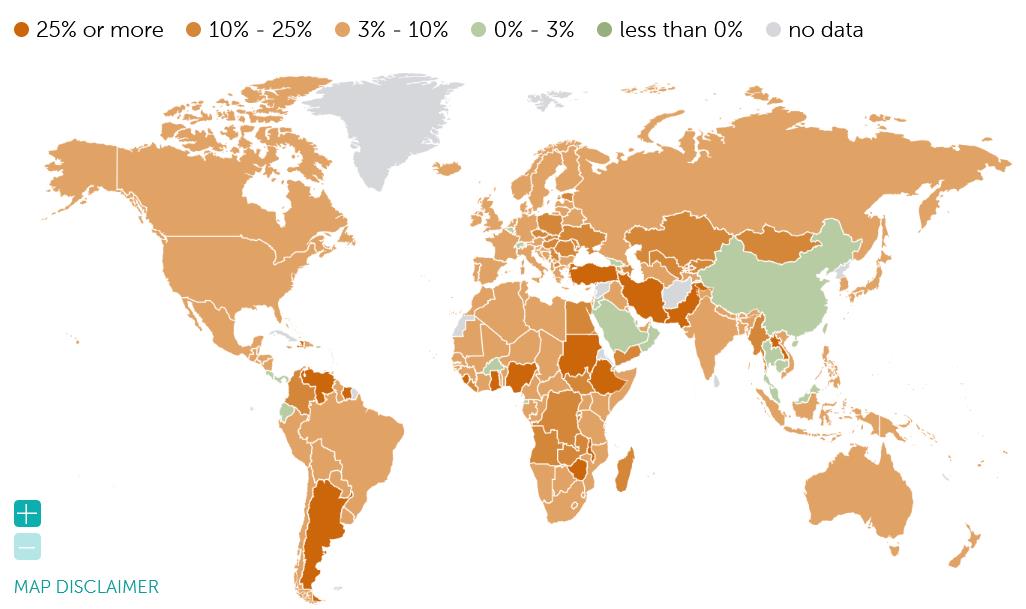
Rising Prices
The price of Bitcoin (BTC) has soared to new heights in countries facing severe inflation. Over a 30-hour period on October 23-24, the cost of one Bitcoin reached all-time highs when measured against the Argentine peso, Nigerian naira, Turkish lira, Laotian kip, and Egyptian pound.
Inflation Woes
It's important to note that this surge in Bitcoin price is largely due to the ongoing devaluation of these currencies, which has been further exacerbated by a 16% increase in Bitcoin's value.
The Nigerian naira and Turkish lira hit their lowest points against the US dollar on October 24 and 25, while the Argentine peso is currently only 0.85% away from its all-time low.
Inflation Rates
The International Monetary Fund (IMF) reports that the Venezuelan bolivar currently has the highest annual inflation rate at 360%, followed by the Zimbabwean dollar (314%), Sudanese pound (256%), and the Argentine peso (122%). The Turkish lira and Nigerian naira come in at sixth and 15th, respectively, with annual inflation rates of 51% and 25%.

Hedging Against Inflation
Crypto experts have long seen digital assets like Bitcoin as a hedge against skyrocketing inflation. The recent surge in Bitcoin's value in inflation-hit countries only strengthens this belief.
Nigeria, Turkey, and Argentina are among the top countries worldwide in terms of cryptocurrency adoption. This highlights the growing interest in digital assets as a means of preserving wealth.
Governments' Stance on Cryptocurrency
While these countries have seen significant cryptocurrency adoption, their governments haven't always been supportive of the industry.
In Nigeria, the central bank banned local banks from providing services to cryptocurrency exchanges in February 2021. However, progress has been made, and the country announced its intention to recognize cryptocurrencies as "capital for investment" in December 2022.
Turkey, despite having a crypto-curious population, banned cryptocurrency payments for goods and services in April 2021. The country has also been exploring the development of a central bank digital currency (CBDC) to digitize the Turkish lira.
Argentina is currently facing an inflation crisis, which could be influenced by the outcome of its upcoming presidential election. Presidential candidate Javier Milei wants to launch a CBDC to address the country's long-lasting inflation crisis, while his competitor Sergi Massa aims to defend the Argentine peso and keep the US dollar away from Argentinians.
As these countries navigate their economic challenges, Bitcoin and other digital assets may continue to play a role in providing financial stability for their citizens.






